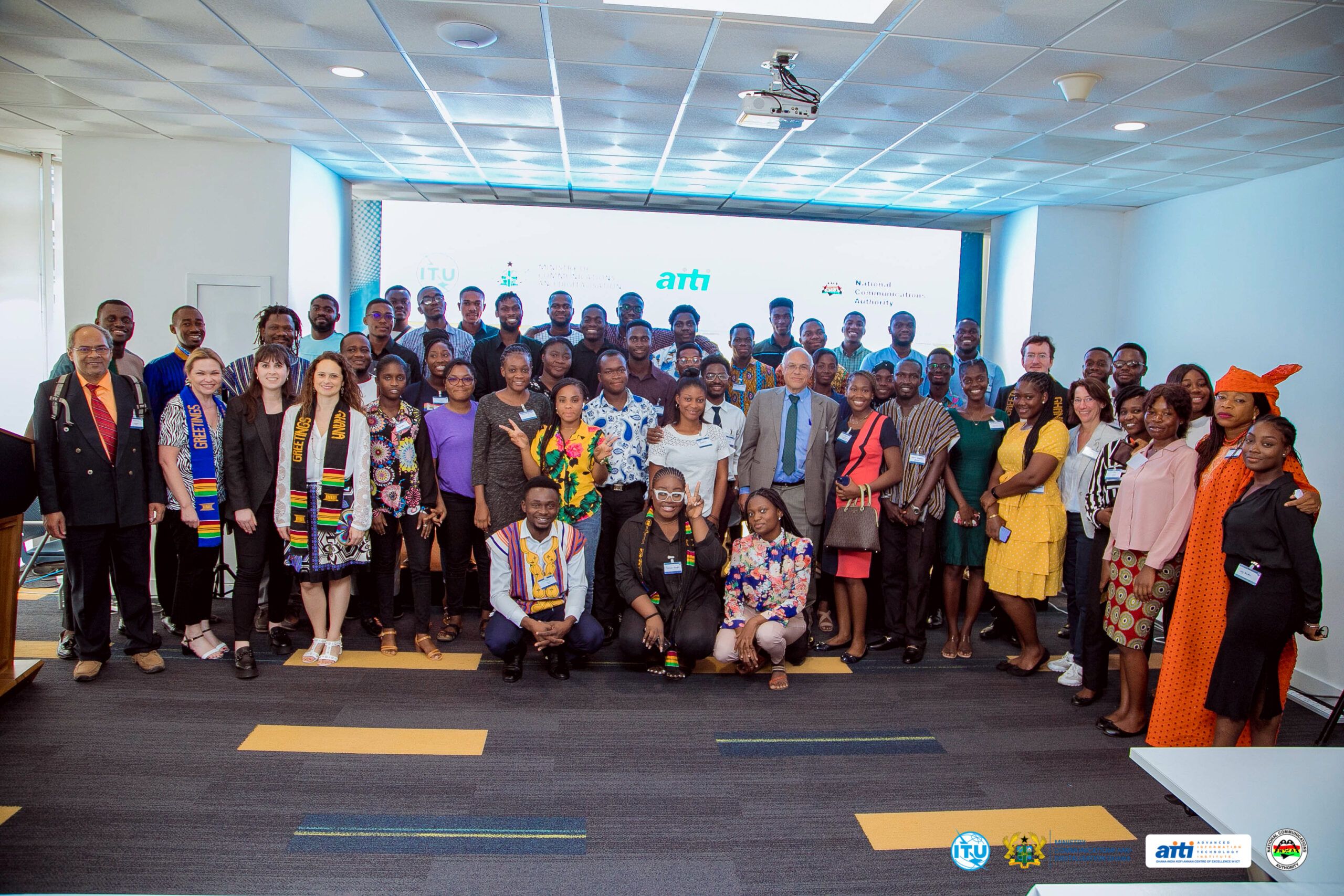
Top prizes awarded for augmented reality research at ITU Kaleidoscope
By ITU News
Researchers from The Netherlands, India, Japan, Germany, and South Africa have received the top three awards at this year’s Kaleidoscope academic conference for their research on augmented reality (AR).
The research looks at land registries, pedestrian navigation, and AR application design, showing how AR can enhance our relationship with our natural and built environment.
Kaleidoscope is a peer-reviewed academic conference highlighting research into key topics for the technical standardization work of the International Telecommunication Union (ITU). The 14th edition of the conference took place last week in Accra, Ghana, hosted by Ghana’s National Communications Authority.
The conference looked at opportunities in extended reality and how standards could support interoperability and a high-quality user experience — two requirements for successful interaction between different worlds, physical or virtual.
See the conference programme for all Kaleidoscope presentations and revisit the recorded talks on the conference website.
All papers accepted and presented at the conference are published in the Kaleidoscope 2022 Proceedings and the IEEE Xplore Digital Library. Outstanding papers may also be published in the ITU Journal on Future and Evolving Technologies and IEEE Communications Standards Magazine.
Best papers this year
Authors of the three best papers — as determined by an international jury of technical experts — receive a share in a prize fund of 6,000 Swiss francs (CHF).
Shared 1st prize: “The knowledge graph as the interoperability foundation for an Augmented Reality application: The case at the Dutch Land Registry” (presentation): Alexandra Rowland and Erwin J.A. Folmer (University of Twente & Kadaster, The Netherlands); Tony Baving (Kadaster, The Netherlands)
Shared 1st prize: “Enhancing user experience in pedestrian navigation based on Augmented Reality and landmark recognition” (presentation) by Dhananjay Kumar, Shreayaas Iyer, Easwar Raja and Ragul Kumar (Anna University, MIT Campus, Chennai, India); and Ved P. Kafle (National Institute of Information and Communications Technology, Japan)
3rd prize: “A framework for the design, implementation and evaluation of a multi-variant Augmented Reality application” (presentation) by Sophie Westfahl (University of Applied Sciences Neu-Ulm, Germany); Dany Meyer-Renner (University of Applied Sciences Neu-Ulm, Germany); and Antoine Bagula (University of the Western Cape, South Africa).
Six authors of presented Kaleidoscope papers also received Young Author Recognition Certificates, reserved for authors under 30 years of age.
Metaverse insights and more
Alongside presentations of accepted papers, Kaleidoscope 2022 featured a series of keynote and invited talks as well as an exhibit put on by students at Ghana’s Kwame Nkrumah University of Science and Technology and Ghana Communication Technology University.
Forward-looking keynotes and invited papers explored the technical demands of metaverse interoperability, high-quality user experience in extended reality, and holographic communications.
They also presented a clinical evaluation of deep learning systems for the diagnosis of pleural effusion and cardiomegaly in Ghana, Vietnam, and the United States.
An invited session organized by the conference’s host committee and delivered by the Ghana Communication Technology University looked at how the metaverse could enhance education.
United for Smart Sustainable Cities (U4SSC) – an initiative supported by ITU and another 17 UN partners – held a ceremony to celebrate Kyebi, in southeastern Ghana, the latest city to implement the U4SSC Key Performance Indicators for Smart Sustainable Cities based on ITU standards.
Opportunities for research communities
The ITU Journal and ITU Academia membership form two more key avenues for academics to engage in ITU’s work.
The ITU Journal on Future and Evolving Technologies provides comprehensive coverage of communications and networking paradigms. Free of charge for both readers and authors, the journal welcomes papers all year, on all topics.
A webinar series presented as part of the ITU Journal features internationally renowned researchers.
ITU Academia members participate in ITU expert groups responsible for radiocommunication, standardization and development, strengthening the work of ITU and boosting the impact of their own research.
Learn more about ITU Academia membership.
ITU Kaleidoscope 2022 was organized with the technical co-sponsorship of IEEE and the IEEE Communications Society and in partnership with Waseda University, the Institute of Image Electronics Engineers of Japan, the Institute of Electronics, Information and Communication Engineers of Japan, the Chair of Communication and Distributed Systems at RWTH Aachen University, the European Academy for Standardization, the University of the Basque Country, Liverpool John Moores University, the University of Limerick, the Korea Advanced Institute of Science and Technology, and Confirm Smart Manufacturing.
Image credit: ITU
